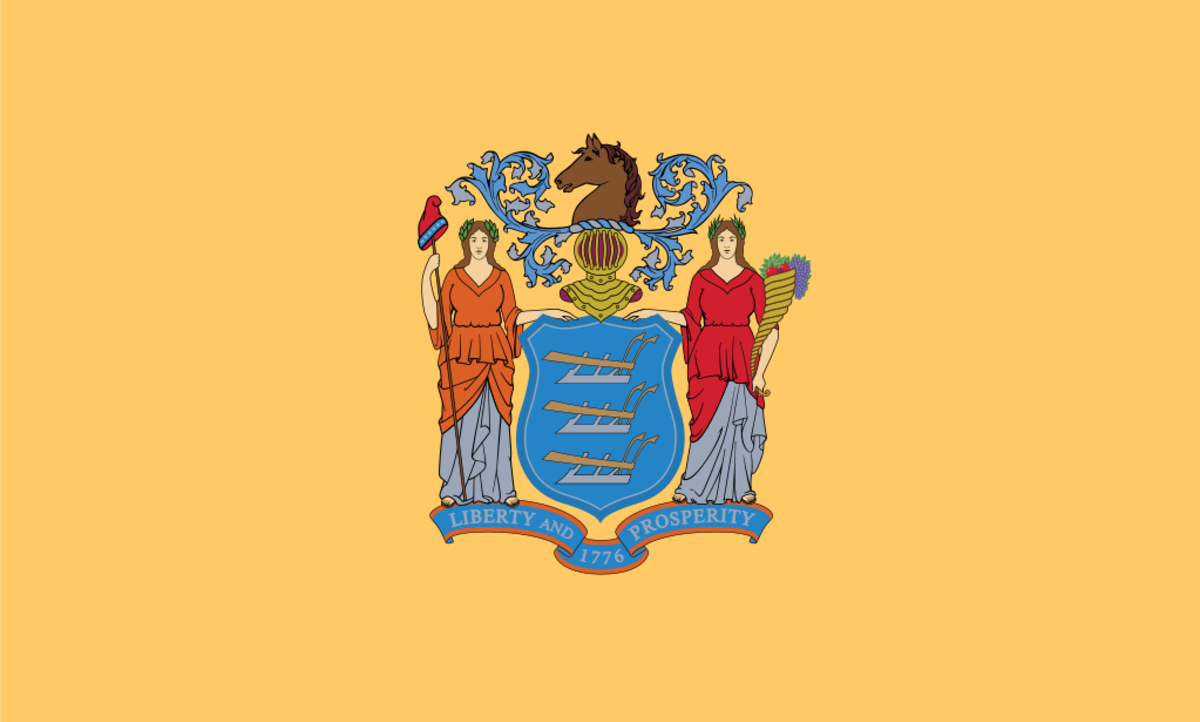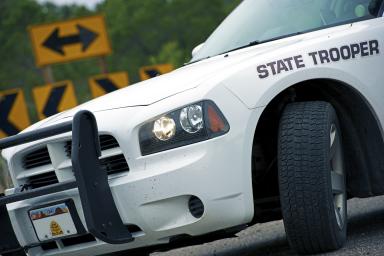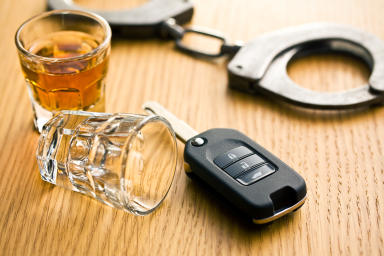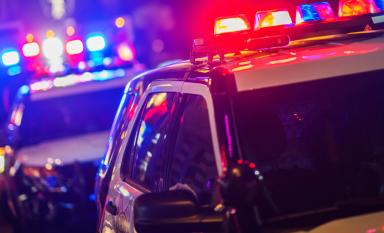New Jersey DUI Laws

Data gathered by Zutobi Driver’s Ed, an international driver’s education company, shows that New Jersey had a relatively low incidence of DUIs in 2021. According to the report, the state was in the bottom six states with the lowest number of drunk driving fatalities and occurrences. In the previous year, it ranked pretty much the same. The consistent ranking somehow paints a picture of the state being safer for drivers as compared to other places.
However, it seems the devil is in the details. DUI deaths in the Garden State increased in general in 2021, with a rise of 17.8%. Meanwhile, alcohol sales and consumption rates were both up compared to 2020, according to the National Institute on Alcohol Abuse and Alcoholism. Zutobi theorizes that this trend was made worse by the past health crisis, which turned alcohol consumption into a coping mechanism for those affected.
There remains much to be done to make the state a truly safe place for drivers, and any gains on the drunk driving front have to be sustained. To this end, the government has instituted civil and criminal laws to curb the incidence of alcohol consumption behind the wheel, and the reader is encouraged to self-educate on the matter with this article.
What Are the Blood Alcohol Limits in New Jersey?
It is unlawful in New Jersey to drive with a blood alcohol concentration of 0.08%. This is considered a DUI per se, which means that the suspect will be convicted even if he was not behaving erratically behind the wheel. Penalties go up if the suspect’s BAC hits 0.10%.
Having a BAC below the DUI per se threshold is not a guarantee of acquittal if the driver was moving erratically. As long as the driver’s senses seem impaired and driving ability is demonstrably affected, one may be convicted of drunk driving. Impairment under the law does not stop with intoxication with ethanol. Being under the influence of drugs or similar substances is also disallowed. Hence, the BAC limit is not a hard-and-fast rule since it is possible that something else is affecting the driver’s faculties. The important factor is the ensuing poor driving.
Special Cases
If the suspect is a parent or guardian and there is a minor aged 17 or below in the vehicle, an additional disorderly person offense will be charged. The law looks with disfavor upon those who are tasked with the safety of youth yet expose the latter to risk.
If the driver is under the age of 21, the blood alcohol limit is 0.01%. In short, any trace of alcohol in the blood is disallowed since minors are not legally allowed to buy or consume alcoholic drinks. Thus, there is zero tolerance for minors compared to adults.
Can One Refuse a Breath Test in New Jersey?
One is effectively not allowed to refuse a breath test in New Jersey. The state is an implied consent jurisdiction, where every licensed driver is presumed to consent to a blood alcohol test when pulled over. The legal fiction is that this consent to testing when pulled over is a prerequisite to possessing a driver’s license. There are penalties for refusal that get worse with each additional incident, and they remain in effect even if the perpetrator is acquitted of the drunk driving charge. Refusal is its own separate offense under the law.
What Are the Penalties for Drunk Driving in New Jersey?
Being caught drunk driving in New Jersey brings with it multiple penalties, such as imprisonment, fines, community service, license suspensions, and ignition interlock device installation. The penalties are raised based on factors like the number of past offenses and how high the blood alcohol level was for the first offense.
The following table shows the penalties for drunk driving, driving with a suspended license, and refusing a breath test:
Are Drinking Establishments and Social Hosts in New Jersey Liable for Drunk Driving Incidents?
Establishments in New Jersey need to be licensed to sell alcoholic beverages. There are penalties in place for licensed servers who give alcoholic beverages to a visibly intoxicated person, to one who is known to be a minor, or to one whom one ought to know to be a minor. Visible drunkenness and evident minority when being served are all that matter. In one case where drinks were served on a self-service basis, the court did not place a burden upon the establishment to monitor each drinker who got alcohol from the dispenser, and liability would only attach if the patron was evidently impaired when getting a helping.
Social hosts are similarly liable to injured persons if they meet three criteria. First, the person behind the drunk driving incident must have been visibly intoxicated within sight of the host. Second, an unreasonable risk of harm to property or life should have been created because of the drunkenness. Third, the person who was served alcohol must have caused the accident. The host may deny that the motorist was visibly drunk, but this defense is rebuttable if the drunk driver’s blood alcohol level was 0.10% to 0.15%. Paradoxically, the law has no presumptions in place for levels exceeding 0.15%.
What Are the Damages Available for Drunk Driving in New Jersey?
Criminal offenses also lead to civil liabilities on top of penal repercussions. A drunk driver in New Jersey faces personal injury suits for negligent or malicious acts and omissions perpetrated during the inebriated operation of a motor vehicle. The plaintiff’s first line of attack is to demand compensation from the insurance company, and when this measure fails, the suspect may be sued directly.
To win a civil tort action, the claimant has to prove four elements: that the defendant had a duty of care towards the victim; that the duty was breached; that there was a causal link between the breach of duty and the harm sustained; and that damages resulted from the previous elements.
Once a tort is proven, the court shall award damages. There are two broad classes of damages: compensatory and punitive. Compensatory damages are designed to replace what the victim lost in an economic and non-economic sense. Economic damages include medical expenses and rehabilitation costs. Non-economic damages are awarded for intangibles like pain and suffering. There is no cap in the state when it comes to compensatory damages.
Punitive damages are designed to punish the wrongdoer in a civil sense. These are akin to penalties in criminal law and are given when a person acts with gross negligence or conduct that exhibits a total and deliberate lack of concern for the well-being of others.
Not all drunk driving cases result in punitive damages. In one case where these were awarded, gross negligence was demonstrated by the intoxicated motorist moving at almost double the speed of the victim’s car and swerving. The defendant also had a long history of alcohol overconsumption and driving while inebriated.
Punitive damages contemplate a situation beyond simple drunkenness. They are awarded when the judge sees the need to punish the driver for grossly negligent or deliberately injurious behavior. Punitive damages are capped at $350,000, or five times the compensatory award, and the greater value will be used.
The New Jersey Statute of Limitations
From the suspect’s point of view, the authorities in New Jersey have 90 days from the date of an offense to charge a suspect in court for drunk driving. These are imposed as a practical matter because the older a case becomes, the harder it is to find relevant and convincing evidence to pursue the case. This time limit is also applied to those who have commercial driver’s licenses and who refuse a breath test. In practice, it is very hard for this statute of limitations to come into play for the defendant because the police will issue citations and arrest the perpetrator on-site, and these processes prevent the time limits from beginning. The arrest and citations put the suspect on legal notice of the charges and will freeze the statute of limitations. Any concerns about due process and being duly warned about incoming court processes are done away with since the perpetrator knows that there is an upcoming court date on the citation.
Civil law plaintiffs in the state may file a personal injury suit on top of the criminal case, and it has a two-year time limit for filing. The period begins counting from the day the crash occurred. If the victim is a minor, the time frame begins once the injured party turns 18. If anyone dies, the two-year allotment is reckoned from the date of death, which may not be the same as the accident itself. These periods exist even if the time to file a criminal case passes.
Resources for Folks Injured by an Impaired Driver in New Jersey
New Jersey Department of Law and Public Safety Office of the Attorney General: Alcohol Awareness
This is a detailed yet still digestible guide to the drunk driving statutes operating in the state of New Jersey. It is part of the alcohol awareness program of the government, and it remains accessible and a useful primer before formally meeting an attorney.
Mercer County Bar Association Find-A-Lawyer
This utility is provided by the Mercer County Bar Association as a tool for needy individuals who need to find a lawyer. One may submit the name of the desired lawyer and a brief case description, and then the tool will send the request to a staff member who will link the potential client to an attorney. The site is available in Spanish and English.
Central Jersey Legal Services
This office is a nonprofit law practice that is staffed by attorneys and paralegals who help people who fit eligibility requirements for income, family size, and living expenses. It focuses on civil cases for low-income residents of Union, Mercer, and Middlesex counties. This firm is perfect for those who cannot otherwise afford a lawyer. While personal injury law attorneys in private practices will often work on an installment basis and require no upfront fees, there is no reason not to consult with the CJLS on a preliminary basis.
Volunteer Lawyers for Justice
Volunteer Lawyers For Justice is a law firm that operates on a pro-bono basis and tackles tort and mass tort cases for the residents of New Jersey. It also takes on various civil cases like bankruptcy and eviction. It has been operating since 2001 and originally took on clients from Essex County.
Expertise.com StaffAuthor
Step into the world of Expertise.com, your go-to hub for credible insights. We don't take accuracy lightly around here. Our squad of expert reviewers, each a maestro in their field, has given the green light to every single article you'll find. From rigorous fact-checking to meticulous evaluations of service providers, we've got it all covered. So feel free to dive in and explore. The information you'll uncover has been stamped with the seal of approval by our top-notch experts.




